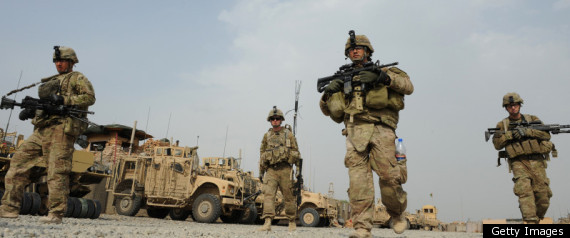Republicans Napier Fuller and Frank Christopher Meares got in under the wire late this week to file for the Wilmington City Council race. They join a crowded field of candidates vying for three council seats in the 2012 Fall municipal elections.
In addition to Fuller and Meares, those in contention include Ricky Meeks, Joshua Fulton, and Matt Hinson.
Rounding out the field are incumbents Laura Padgett and Ronald Sparks, and former City Council member Margaret Haynes. Incumbent Kristi Campos is not on the fall ballot.
Napier Fuller issued this press release on Thursday, July 14, as he officially filed for a 2012 City Council run:
Fuller’s foremost concern is creating stable jobs that serve real needs: “The future of our regional economy depends upon attracting and retaining high wage, knowledge-based jobs and expanding the tourism and service sector.
"When the regional economy does rebound -- and it will -- we shall find ourselves in an altogether different marketplace for labor. I think it’s a mistake to think we can wait this downturn out, and eventually employment levels will return to ‘normal.’ Rather, we should prepare for fundamental changes to the labor market and be ahead of the curve.”
Fuller has already secured the powerful endorsement of Councilman Charlie Rivenbark, the highest vote getter in the last city council election held in November, 2009. To further demonstrate a commitment to victory, Fuller has hired Coastal Political Strategies, a DC consulting firm with Wilmington ties, to provide strategic advice.
The Fuller Campaign Committee is today (July 14) placing 5,000 robo calls to voters starting at 2:00PM. The campaign will also begin running a 60 second radio ad, July 15-22.
Fuller has run for office once before. In 2010 Fuller, a moderate Republican, ran and lost in the GOP primary for a seat on the New Hanover County Commission that ultimately went to Brian Berger.
This is Fuller’s second race: “I’m excited to be running for City Council and thrilled to have bipartisan support. Currently, there are no Republicans on City Council and I’m hoping to change that. However, it’s important to remember that municipal elections in North Carolina are by nature non-partisan, and this makes sense as it’s hard to apply political ideology in deciding, for example, whether or not to add a pedestrian crossing to improve safety at an intersection.”
In an exclusive interview for USA DOT COM, Fuller revealed how he will approach the challenges of the campaign: "I am determined to run a hard campaign, raise the money needed to win, and really get out there and shake a lot of voters' hands and get the message out."
Fuller said the city faces very serious challenges that will have to be addressed by the new Council.
"The unemployment rate is officially 9.2 percent, but with the major under-employment level, and people going back to school early, the real rate is probably at least twice that."
He also expressed a need to work on traffic planning "a major headache" for the city. Fuller has a master's degree in urban planning, and said he "is definitely up on some of the more technical aspects of traffic planning."
Major traffic issues on the table right now, he stated, include the Skyway, Market Street Corridor, and Third Street improvements.
"We have to adjust to the cessation of annexation, so the city has to live within its means. With the existing tax base, they have already gobbled up so much of Landfall and Middle Sound. There is no way we should begin to nibble away at these other suburban communities."
Fuller said he is committed to "improving the downtown quality of life," as well as doing "sound and intelligent planning to developing the urban corridor around PPD and the Holmes Bridge. There a lot of vacant land there, and this is a great opportunity to add some magnificent buildings on that side of town."
The candidate, 37, is married and has one child, and
FRANK CHRISTOPHER MEARES, 28, a newcomer to municipal campaigning and politics, identifies himself as a "second-generation Wilmingtonian with a passion for finding a mix of preservation of the city's historic buildings while providing comfort, safety and modern amenities to urban dwellers and visitors.
"My ancestors moved here over 100 years ago," he said. His paternal grandfather was a woodcutter, and his maternal grandfather established a downtown antiques and armory business that was very popular and successful in earlier years.
Meares has been married for four years. He is employed by the local American Red Cross as the central supply officer. Currently he is completing an Associates Degree in Political Science in preparation for tranferring to UNCW to pursue a four-year degree in the same field.
He will stake his claim to an agenda touting small government, fewer regulations on business, and fiscal restraint. He proposes to base his campaign on multi-media messaging and door-to-door contact with Wilmington citizens.

